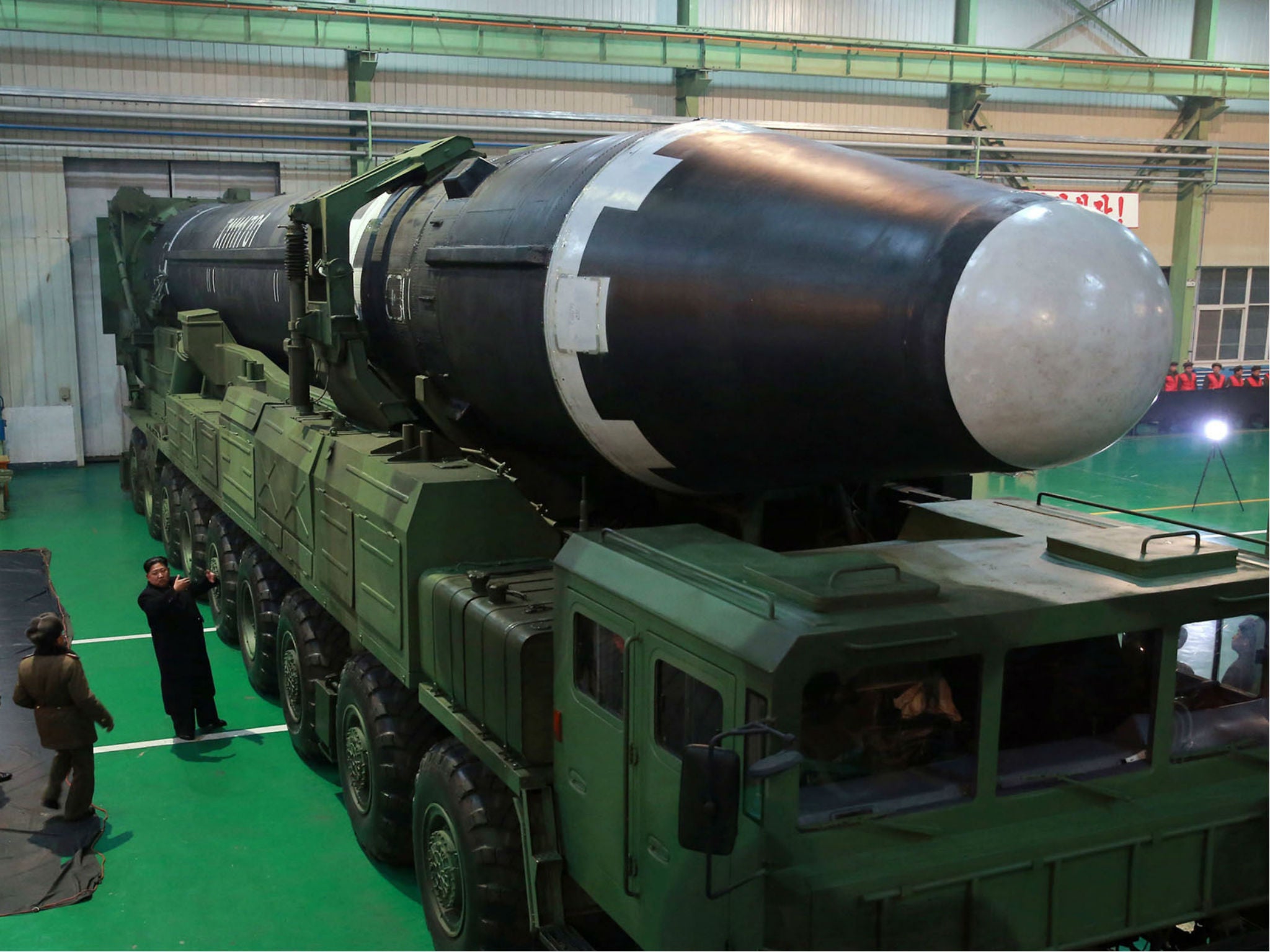Chinese state media gives advice on surviving nuclear attack to citizens near North Korea border
Using practical advice and cartoon illustrations, the full-page report looked to prepare people for nuclear warfare

Your support helps us to tell the story
From reproductive rights to climate change to Big Tech, The Independent is on the ground when the story is developing. Whether it's investigating the financials of Elon Musk's pro-Trump PAC or producing our latest documentary, 'The A Word', which shines a light on the American women fighting for reproductive rights, we know how important it is to parse out the facts from the messaging.
At such a critical moment in US history, we need reporters on the ground. Your donation allows us to keep sending journalists to speak to both sides of the story.
The Independent is trusted by Americans across the entire political spectrum. And unlike many other quality news outlets, we choose not to lock Americans out of our reporting and analysis with paywalls. We believe quality journalism should be available to everyone, paid for by those who can afford it.
Your support makes all the difference.Chinese state media has issued advice to citizens on how to survive a nuclear attack or explosion.
A state-run newspaper in northeastern China's Jilin city, which is near the border with North Korea, published a full page of "common sense" advice that was intended to keep its readers alive in the case of attack.
The article didn't name North Korea or any other military power, despite their proximity. But China has been vocal in its criticism of North Korea's nuclear and missiles programme, as well as attacking the US and South Korea for ratcheting up tensions.
New operations this week will see US bombers fly over the Korean peninsula as part of a huge drill that is being co-ordinated with South Korea. Those drills often provoke the North, which sees them as potential preparations for attack.
North Korea suggested the drills they will push the area to the "brink of war". That was just one part of a range of often aggressive rhetoric to come out of Pyongyang, including a claim that one of Donald Trump's tweets constituted an act of war.
The full page article in the Jilin Daily explains how nuclear weapons differ from traditional arms and instructs people how to protect themselves in the event of an attack.
Nuclear weapons have five means of causing destruction: light radiation, blast waves, early-stage nuclear radiation, nuclear electro-magnetic pulses and radioactive pollution, the article explained. It said the first four kill instantly.
People who find themselves outside during a nuclear attack should try to lie in a ditch, cover exposed skin in light coloured clothing or dive into a river or lake to try and minimise the possibility of instantaneous death, it said.
Cartoon illustrations of ways to dispel radioactive contamination were also provided, such as using water to wash off shoes and using cotton buds to clean ears, as well as a picture of a vomiting child to show how medical help can be sought to speed the expulsion of radiation through stomach pumping and induced urination.
The influential state-backed Global Times in a commentary on Wednesday described the article as a public service announcement due to the situation on the Korean peninsula.
"If war breaks out, it is not possible to rule out the Korean peninsula producing nuclear contaminants, and countermeasures must be seriously researched and spoken openly about to let the common folk know. But at the same time, there is absolutely no reason to be alarmed," the Global Times said.
North Korea last week tested what it called its most advanced intercontinental ballistic missile (ICBM) that could reach all of the United States.
U.S. President Donald Trump has warned he would destroy the North Korean regime if it threatened the United States with nuclear weapons.
China has rejected military intervention and called for an end to the war of words between Washington and Pyongyang.
Additional reporting by Reuters
Join our commenting forum
Join thought-provoking conversations, follow other Independent readers and see their replies
Comments